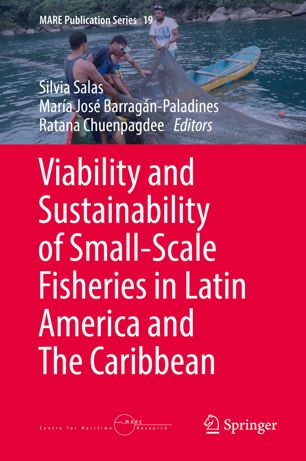

Most ebook files are in PDF format, so you can easily read them using various software such as Foxit Reader or directly on the Google Chrome browser.
Some ebook files are released by publishers in other formats such as .awz, .mobi, .epub, .fb2, etc. You may need to install specific software to read these formats on mobile/PC, such as Calibre.
Please read the tutorial at this link: https://ebookbell.com/faq
We offer FREE conversion to the popular formats you request; however, this may take some time. Therefore, right after payment, please email us, and we will try to provide the service as quickly as possible.
For some exceptional file formats or broken links (if any), please refrain from opening any disputes. Instead, email us first, and we will try to assist within a maximum of 6 hours.
EbookBell Team

0.0
0 reviewsOne of the main goals in fisheries governance is to promote viability and sustainability in small-scale fishing communities. This is not an easy task given external and internal pressure, including environmental change and competition with other economic sectors searching for development in the coastal region. A comprehensive understanding of small-scale fisheries in their own context, and from a regional perspective, is an important step in supporting the implementation of the Voluntary Guidelines on Securing Sustainable Small-Scale Fisheries (SSF Guidelines). This book contributes to the global effort by offering knowledge, insights and lessons about small-scale fisheries in Latin America and the Caribbean. The 20 case studies included in the book make explicit the various dimensions that are intrinsic to small-scale fisheries in the region, and identify conditions and situations that affect the wellbeing of fishing communities. The book offers insights regarding the challenges faced by small-scale fisheries in the region, and, aligning with the objectives of the SSF Guidelines, provides lessons and experiences about how to make small-scale fishing communities viable while maintaining sustainable fisheries.
This important book illustrates the complexity, diversity, and dynamics of small-scale fisheries in the Latin American and Caribbean region and presents experiences, tools, and approaches to lead towards sustainable and viable fisheries. The reader will gain a new understanding on the range of actions, approaches, and information needed for their successful management.
John F. Caddy, International Fisheries Expert
This book, prepared by the Too Big To Ignore partnership, constitutes a very valuable resource for policy makers, fisheries scientists, non-governmental organizations, civil society organizations, and fishing communities interested in putting in place sound management strategies, research, and actions to contribute to the sustainability of small-scale fisheries and food security in Latin America and the Caribbean region.
Juan Carlos Seijo, Professor of Fisheries Bioeconomics at Marist University of Merida